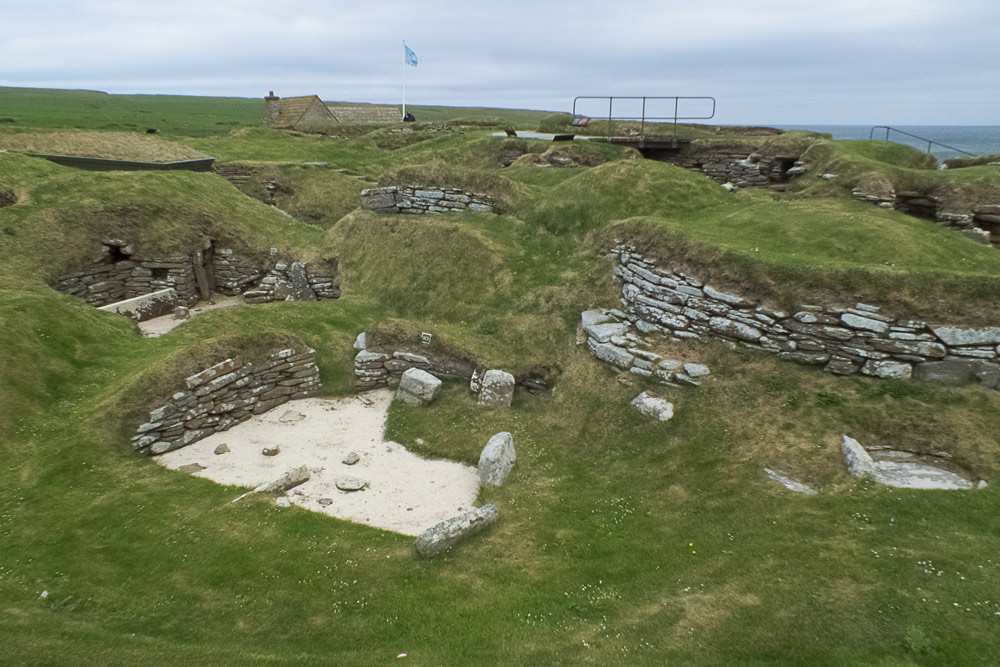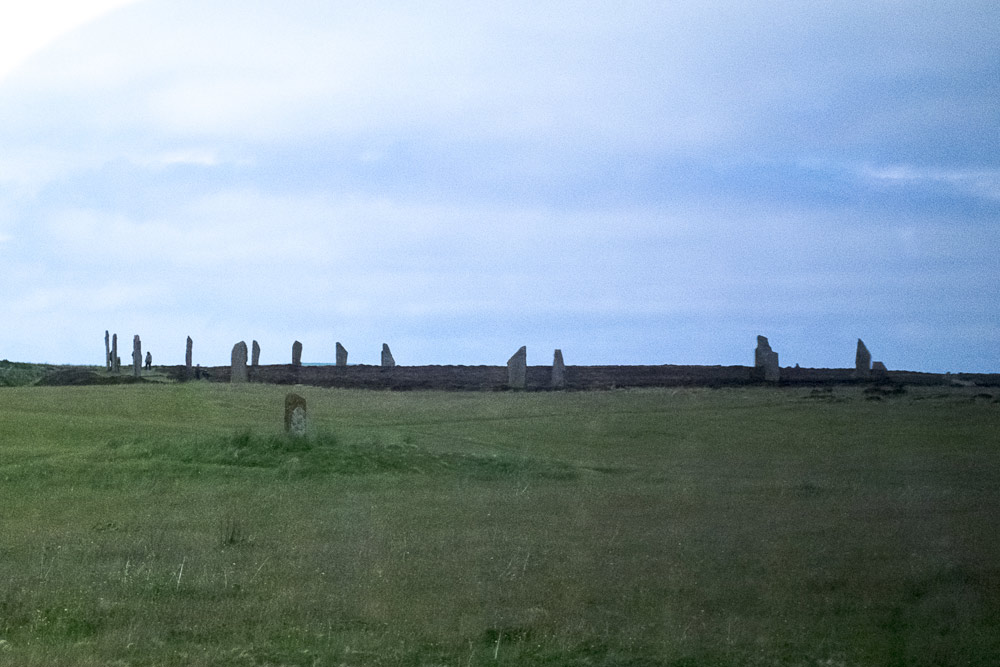Orkney Islands
"The architectural achievements of the people living there speak for a level of architectural sophistication which matches that of the centres in Mesopotamia
and North Africa. There is a piquant contrast between the small absolute size of the Orkney community 5000 years ago and its exceptional cultural vigour."
I felt very fortunate to have been able to visit these remote places.

containing stone furniture, that were buried until it was rediscovered when a storm uncovered parts of it in 1850.
It is older than Stonehenge and the Great Pyramids.

and subsequent protection by a seawall, and there are remains in the area that are known to exist but haven't been uncovered yet.

The circle is 104 metres in diameter and originally contained 60 stones. Only 27 are still standing. There is still a lot
of archeological work to be done on these sites to help us understand more about them.

Unlike Avebury in England, whose ditch was dug out of chalk, this one was carved out of the solid sandstone bedrock.

Newgrange, in Ireland, also has a winter solstice alignment. Maeshowe also contain Norse runic 'graffiti' from the 12th c.
We went inside and marvelled at the stonework done by ancient people and still standing today.
<- Back | Map | Next ->